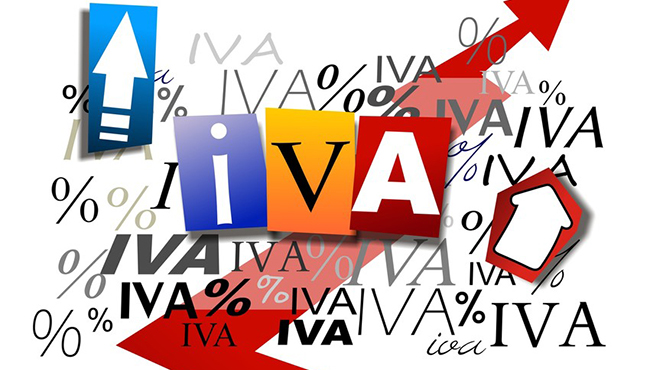
One of the main doubts that arise to all those people who have an online business, is directly related to how to apply VAT in electronic commerce.
Aware of this, from AYCE Laborytax we wanted to dedicate a post to solve this doubt, based on the rules on VAT in electronic commerce,approved by the Ministers of Economy and Finance of the European Union in December 2017.
How should VAT be applied in e-commerce?
Sales is one of the elements that most concerns all those people who decide to open their own e-commerce, and here the VAT that must be applied to each of the sales produced is one of the things that must be taken into account.
It is important to be clear that in each country a different VAT rate is applied,in order to avoid possible confusion when formalizing a sale. Having said that, all the countries belonging to the European Union have
three different VAT rates
: standard, reduced and super-reduced, and each one is applied according to the category to which each product or service belongs.
You may be interested in:
Do you know what the VAT equivalence surcharge is and what rates exist?
The first thing you should keep in mind, is that the place where the sale is made will depend on whether or not you haveto apply VAT, something that is known as the VAT location rule.
A rule that refers to the place of realization of the taxable event, which is regulated in articles 68 of Law 37/1992 of December 28, on Value Added Tax.
There are two different cases when it comes to applying VAT on online sales

– Sales within Spain
Those electronic shops whose tax headquarters are located in Spain,and sell products to people residing in this country (Peninsula and Balearic Islands), must issue invoices with VAT always, which will vary depending on the percentage that has to be applied to each type of product.
In Spain the general VAT has a percentage of 21%, the VAT reduced by 10%, and the super reduced VAT by 4%.
– Sales outside Spain
If on the other hand e-commerce sells products outside of Spain,we find ourselves with different situations:
- If the product is sold to a customer residing in the Canary Islands, Ceuta or Melilla, the sale will be considered as an export and, therefore, the invoice will be issued free of VAT.
- In the event that the customer is a private person residing in one of the Member States of the European Union, invoices must be issued with the VAT corresponding to each product.
- And if the customer were a company belonging to the European Union, the invoice would be free of VAT, since the sale would be considered as an intra-Community operation, being the recipient company that would have to pay the tax in its country.
Regardless of whether the invoice is subject to or exempt from VAT, when making a sale from your e-commerce, you will be obliged to issue the invoice and a copy of it.
Are there vat-exempt cases?
As we have mentioned previously, in case a product is sold to a particular customer, resident in a country belonging to the European Union, you must issue the invoice with the vat percentage corresponding to that product. But there are certain exceptions here.
And it is that if the total amount of sales made as electronic commerce in that same country, exceeds the limit established by the receiving country, the VAT rate that you must apply will be the corresponding to that country,being necessary to register in that country to be able to invoice with VAT.
If on the other hand the total amount of sales does not reach the limit established by the country of destination, but it is you who decides to apply the VAT corresponding to the country of the customer, you must also register in that country. An idea that is very attractive when the VAT of the country of destination is lower than that of Spain.
Here we must emphasize that when selling services related to the telecommunications, broadcasting, television or electronic sector,it will always be necessary to pay taxes based on the country of the client.
Obligations you should be aware of if you sell online

It is important to know the obligations that you must fulfill when selling online,since in each sale you may find yourself with a different situation, in which you will have to act in a different way.
In case you are an individual, who decides to sell your own items sporadically, you will not be obliged to declare such sales,nor to inform the Tax Agency of the operations carried out. Likewise, it will not be necessary to register as a self-employed worker.
If on the other hand the sale of these products becomes a habitual activity, yes you would be obliged to declare the sales made,being necessary to register as a self-employed worker or as a company, complying with the corresponding tax obligations in each case.
Reduction of VAT on e-books and digital press
One of the latest developments as far as electronic VAT is concerned is the reduction of VAT on e-books and the digital press, from 21% to 4%,as announced by the Government.
The application of a super-reduced VAT rate to e-books, digital magazines and digital newspapers was approved by the Council of Ministers at the presentation of the 2019 General Budgets.
A reduction that has been possible after the European Union, through ECOFIN (Economic and Financial Affairs Councils of the European Union), approved a regulations with which e-books and the digital press no longer had to be subject to the maximum VAT rate.
In this way, both e-books and digital newspapers and magazines will be taxed at the same RATE of VAT as paper newspapers and magazines. The impact of this reduction is expected to be approximately 24 million euros.
conclusion
The application of
VAT in electronic commerce
will depend on each transaction, so it is important to know the EU rules that regulate the application of VAT according to the sale made.








